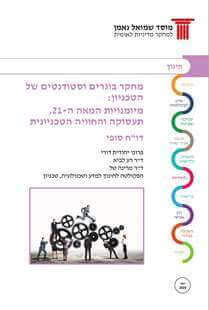21st century skills are essential for career readiness. We investigated the development of those skills in science, technology, engineering, and mathematics (STEM) higher education, as reported by students and alumni of a top-tier research university. Involving senior management at the Institute, we designed a questionnaire aimed at investigating 14 skills and administered it to 1,578 participants.
We divided the skills into (1) domain-general thinking skills, (2) STEM-specific skills, and (3) soft skills. Respondents reported that the first group of skills developed more than the second, which, in turn, developed more than the third. Soft skills of participants with a graduate degree from the Institute developed more than those of participants with only an undergraduate degree from that Institute.
Content analysis revealed nine methods of teaching and learning that helped participants develop their 21st century skills. Course assignments, projects, laboratory experiments, and research helped to develop the largest number of skills. The methodological contribution is the approach for identifying the methods through which students’ 21st century skills had developed, and the matching of those methods to the skills they helped develop. Based on the findings, we provide recommendations to researchers and policy makers.












